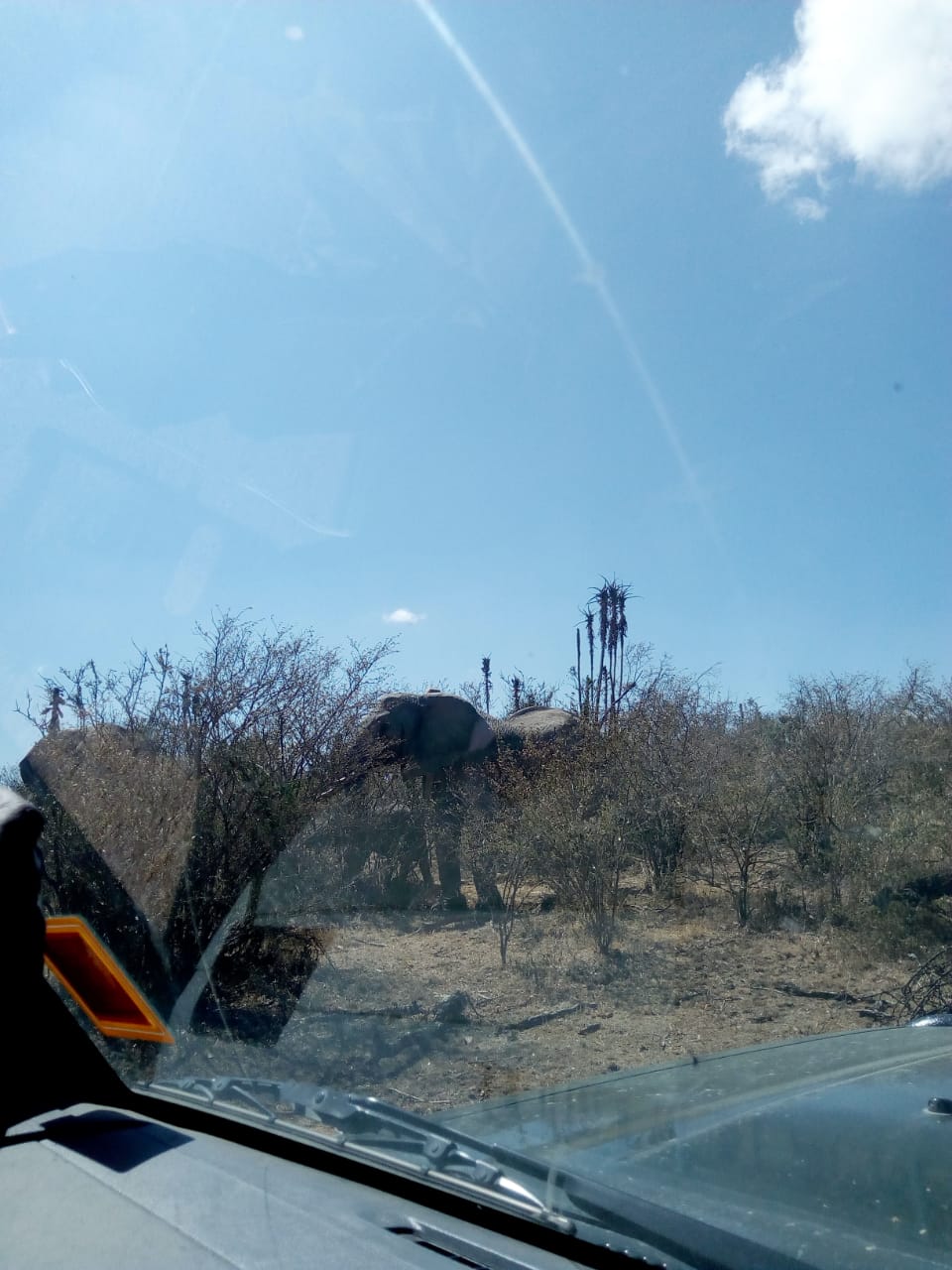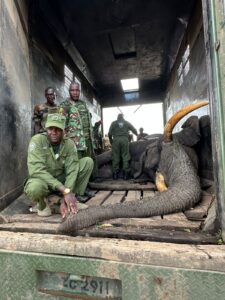Mara Elephant Project employs 38 rangers, including the C.E.O., in our patrol units who work tirelessly to protect elephants to conserve the greater Mara ecosystem, one of Kenya’s most important ecosystems. MEP’s rangers are at the forefront of our anti-poaching operations and human-elephant conflict mitigation efforts through boots on the ground initiatives, living out in the field in mobile bases to protect key hotspot areas.
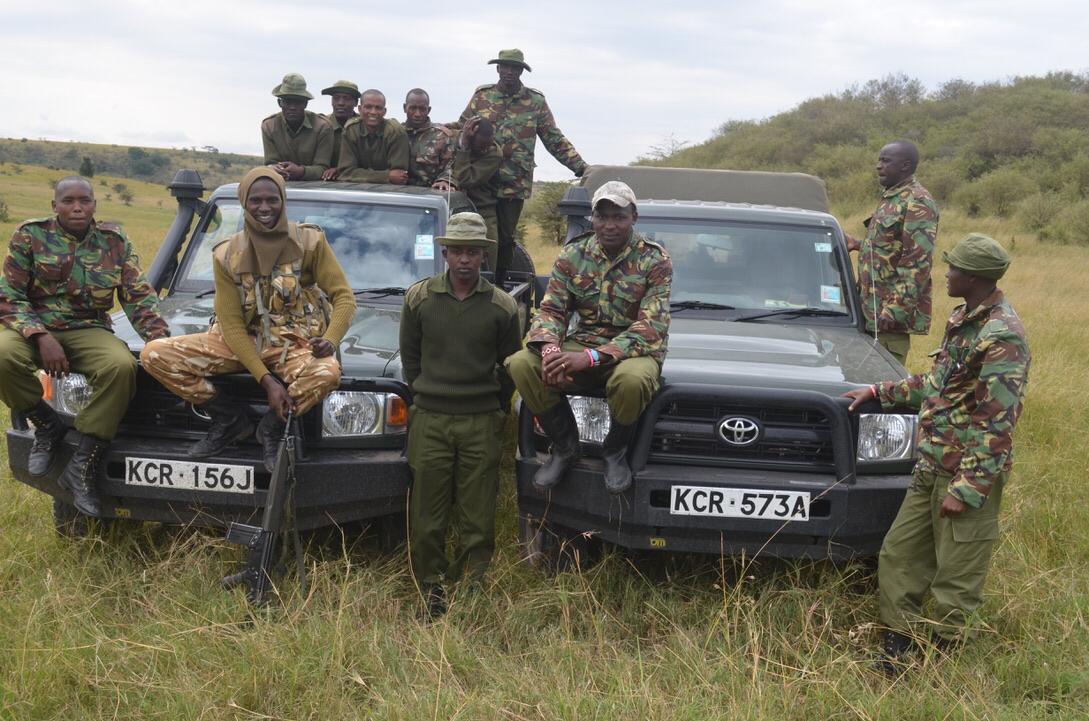
MEP rangers alongside MEP patrol vehicles.
MEP staff responsibilities are to: visit collared elephants daily; respond to collar alerts; work with the attached Kenya Wildlife Service (KWS) and Narok County Government (NCG) rangers on all law enforcement operations; work with intelligence teams to set up operations and make arrests; respond to poaching reports; arrest poachers and follow each case from arrest to conviction; respond to conflict reports and work with community partners to mitigate human-elephant conflict.
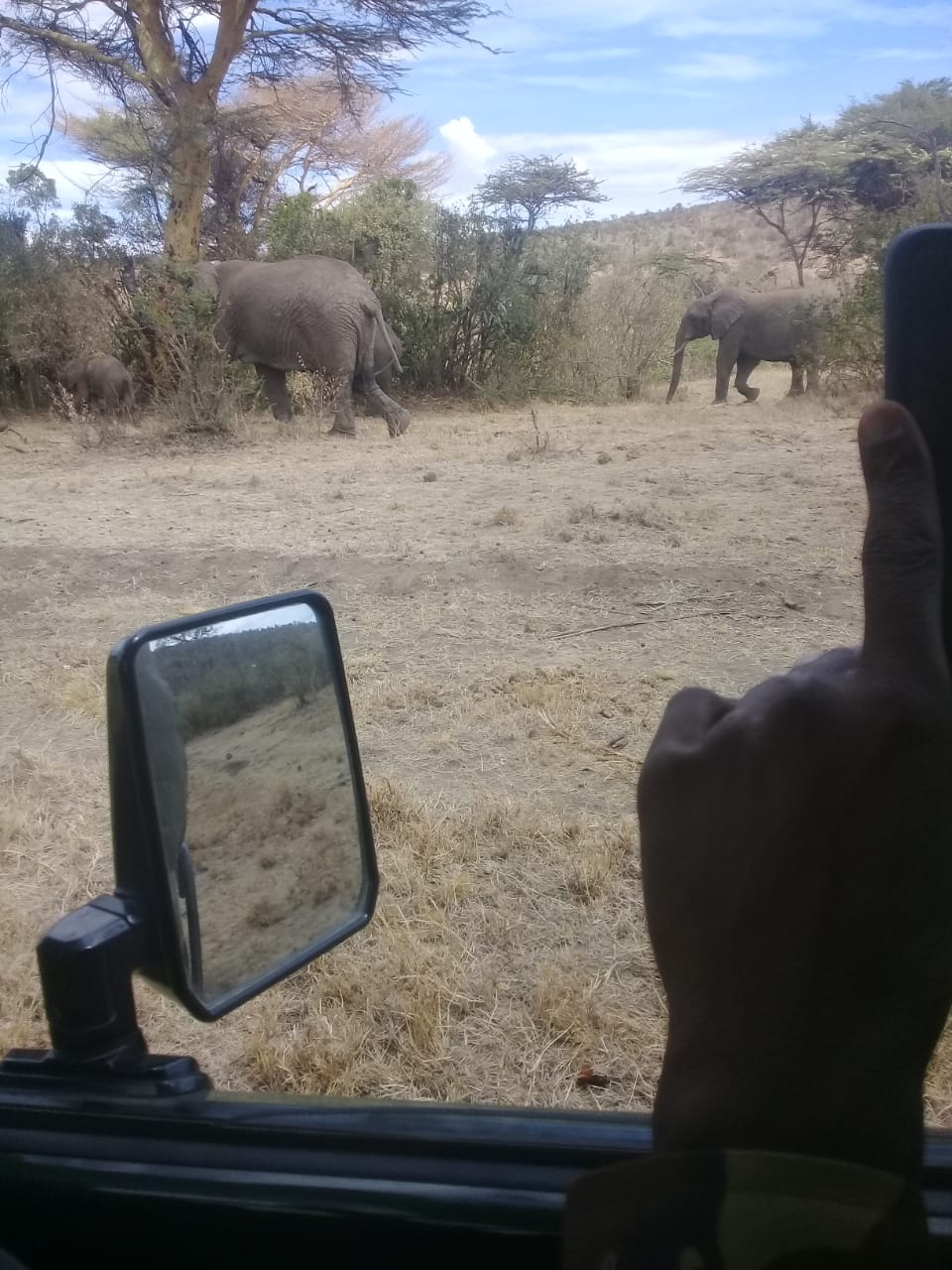
A MEP ranger out on patrol monitoring and photographing one of MEP’s collared elephants and the herd.
Over the last three years in the Maasai Mara, as the number of elephants killed as a result of poaching has declined, conflict related deaths are on the rise. Human-elephant conflict (HEC) is not only the greatest single threat to elephants but is also a major challenge to the livelihoods of those who live in close proximity to elephants. In 2010, only two elephants were killed as a result of HEC, in 2016 this number had increased to 14. MEP responded to 187 HEC incidents in 2017 and due to our efforts, the number of HEC-related elephant deaths was reduced to 11. It’s an increasingly difficult situation as farmers are losing whole fields of crops in a single night along with fences and maize barns that are destroyed. During the dry season (May – August) this situation becomes particularly desperate when elephant food is scarcer, and crops are ripening. These new threats pose multiple challenges to those trying to protect elephants and at the same time safeguard the interests of the local community. MEP has been at the forefront of innovative approaches to mitigating HEC. Already between January and November of 2018, MEP rangers have successfully responded to 185 human-elephant conflict incidents.
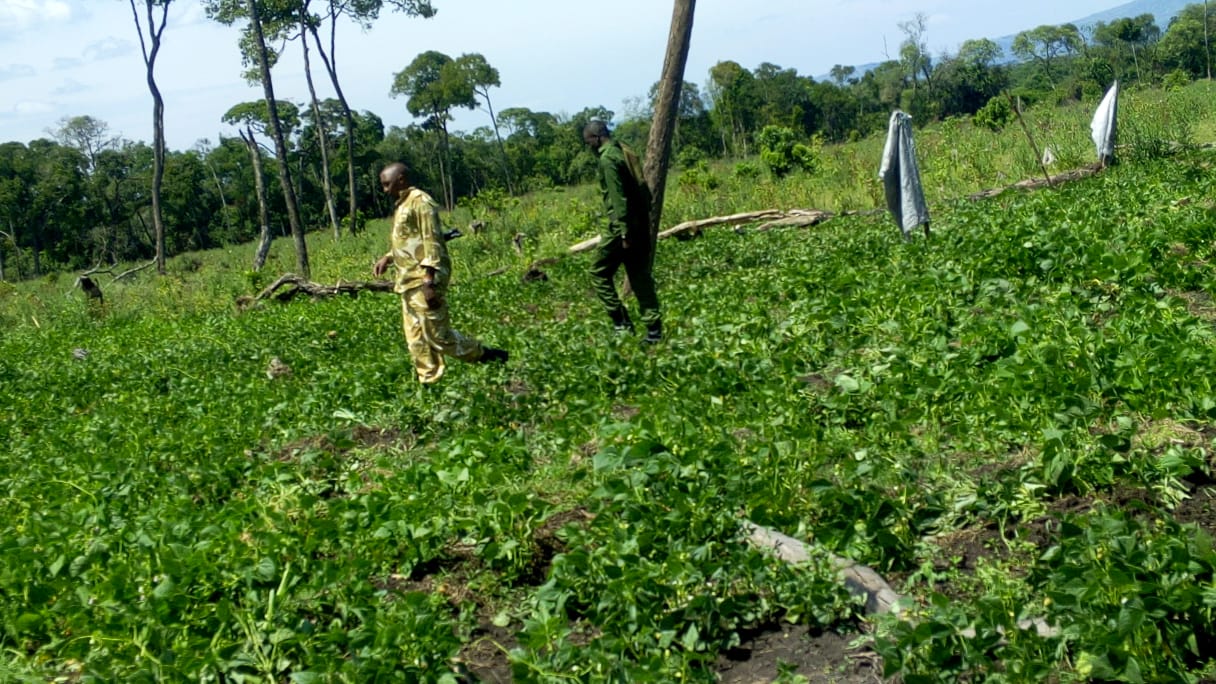
The Oloisukut MEP ranger unit investigating a bean field that had been raided by elephants.
As we enter into a new high season where crops are ripening throughout the Mara, our rangers are working around the clock to mitigate conflict. Just in the past two weeks alone, the Oloisukut MEP ranger unit spent several nights, all night, moving large herds of elephants, including collared elephant Ivy, out of Tarakwet farms.
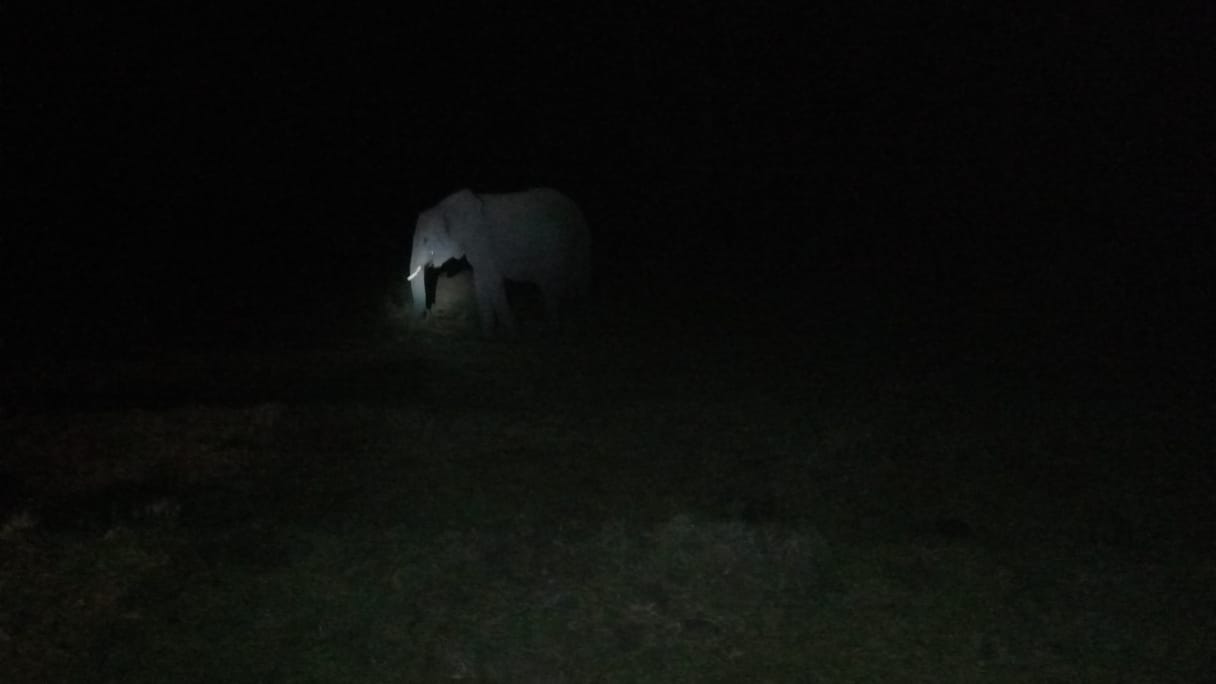
A photo of an elephant at night snapped by a MEP ranger unit while moving them out of farms.
MEP rangers setting off firecrackers at night to safely move elephants out of farms.
Our rangers have been with this community for weeks helping them keep elephants away and find solutions for mitigating conflict. During the day, the Oloisukut unit gets no reprieve as they responded to a herd of 20 elephants in the community chief’s farm. They also investigated multiple reports of damage, including to a bean farm.
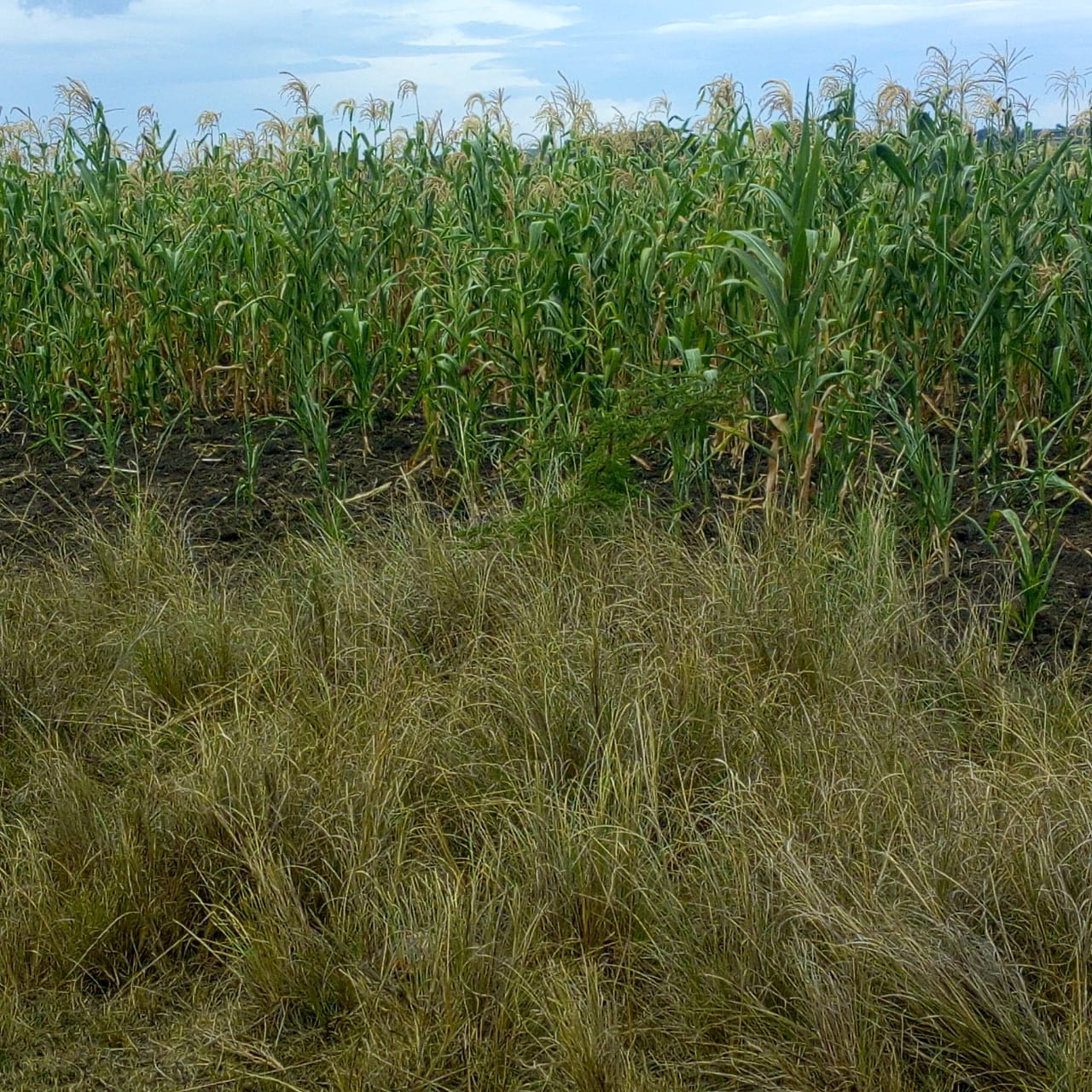
Crops in the chief’s field damaged by elephants.
MEP Tracking Manager Wilson Sairowua received an alert that MEP collared elephant Fred, one of our larger bulls, was heading to an unsafe community area and the Oloisukut team was dispatched to move him to a safer area. The Olarro team has been responsible for pushing large herds of elephants out of communities, they also helped rejoin a calf with its herd after it had been separated and have responded to many human-elephant conflict incidents over the last two weeks.
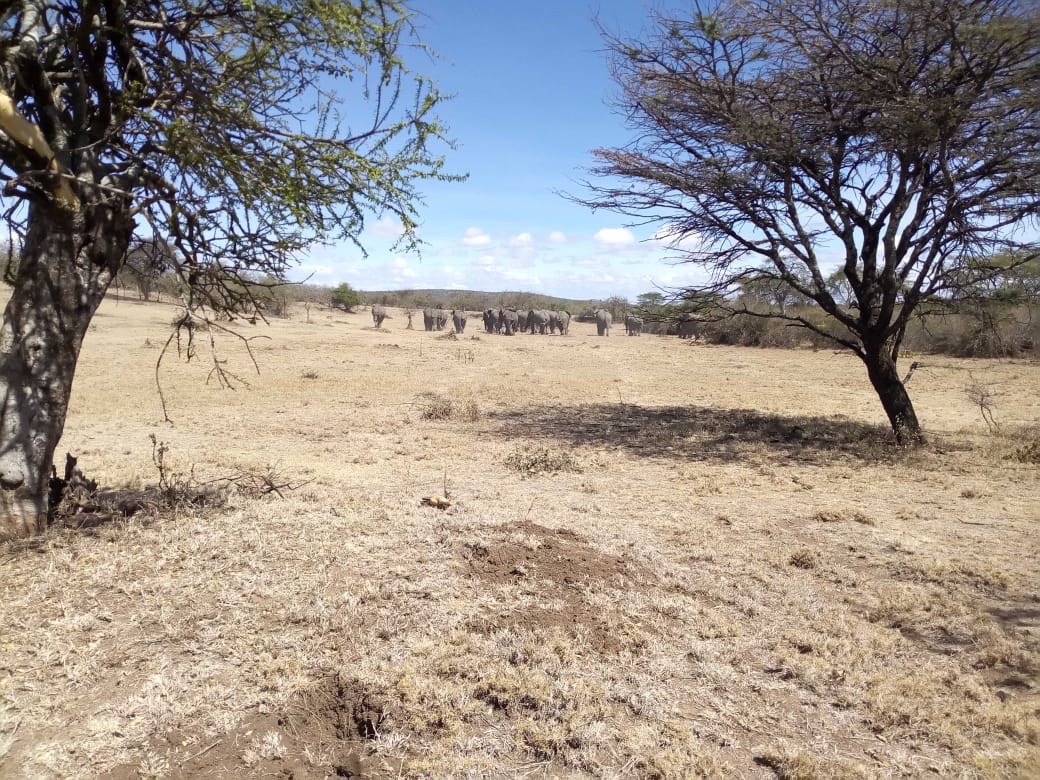
A photo of a large herd of elephants being moved by the MEP Olarro ranger unit into the safety of the conservancy. 
A MEP ranger carefully moving a baby elephant toward its herd and mother.
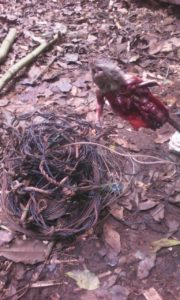
Additionally, some of our other ranger teams, like the David Sheldrick Wildlife Trust Mau De-Snaring Team have been busy with anti-poaching operations. The Mau Forest team recovered 50 snares, illegal bush meat (pictured left) and arrested one person over the last two weeks. Additionally, the Olarro team has arrested two for bush meat poaching and the Emitik team has removed 10 harmful snares from their area of patrol. MEP has also developed a widespread intelligence network to infiltrate poaching gangs.
MEP rangers have arrested 36 poachers and seized 287 kg of ivory (Jan. – Nov.) so far this year.
 Two arrested for bush meat poaching.
Two arrested for bush meat poaching.
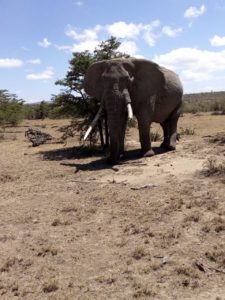
Monitoring our collared elephants from the ground is also extremely important to check on the health and well-being of not only the collared elephant, but the corresponding herd as well. Recently spotted by MEP patrol teams are Namunyak, Hangzhou with a herd of over 40, Nepiris, Fred, Chelsea with a young calf, Kiambi (pictured left) and Limo with another male.
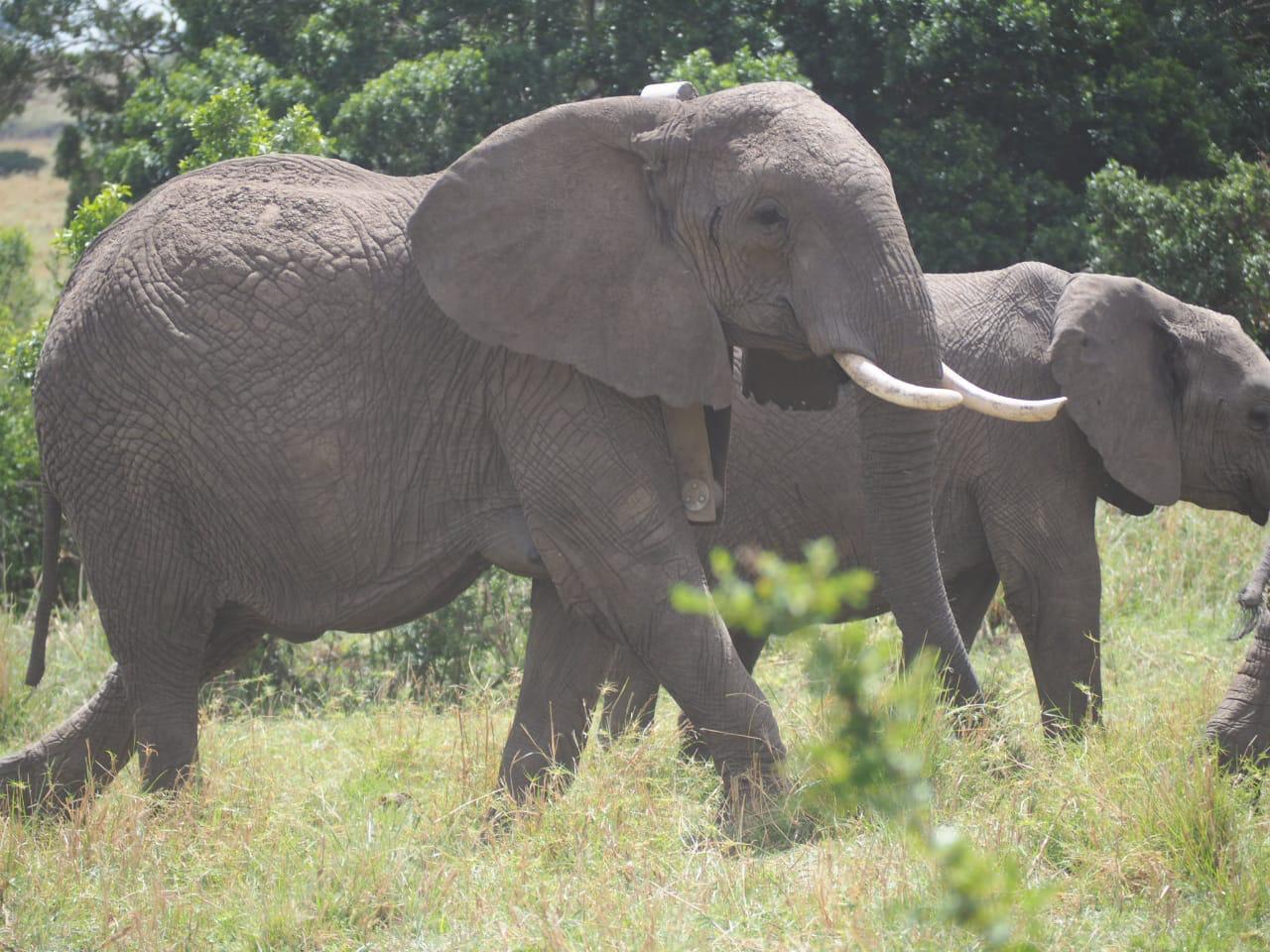 MEP collared elephant Hangzhou photographed by a ranger while out on patrol.
MEP collared elephant Hangzhou photographed by a ranger while out on patrol.
MEP collared elephant Nepiris photographed from a MEP ranger vehicle by a MEP ranger while out on patrol.
Mara Elephant Project are out in the field working hard to protect elephants and they need your support!
